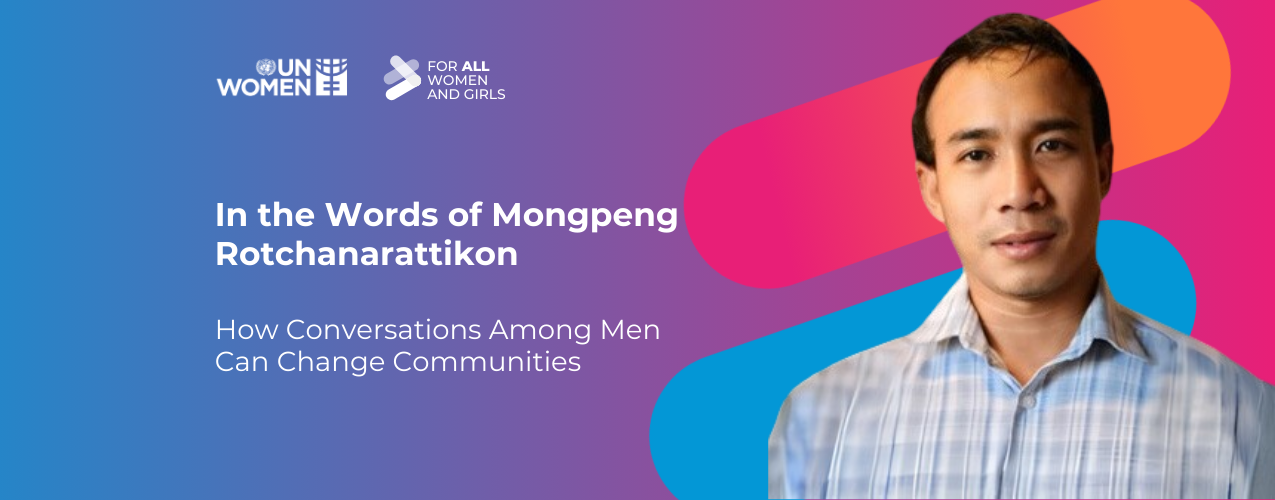Join the Conversation
Check out the latest and spread the word.
Stay updated via social media

2025 marks a pivotal moment for gender equality, not only as we reflect on decades of progress, but also as we confront a growing global pushback against women’s rights. Alarming trends, particularly among younger men, point to a resurgence of regressive gender attitudes, reminding us that the gains we’ve made are fragile and must be defended. In this context, the role of male allyship is more critical than ever. HeForShe continues to champion partnerships that challenge harmful norms and foster shared responsibility in advancing gender equality. Our partnership with the international Rescue Committee (IRC) is one such example as they work to engage men in refugee communities.
As part of IRC’s ongoing commitment to advancing gender equality and preventing gender-based violence (GBV), the Engaging Men through Accountable Practice (EMAP) program was introduced in refugee camps along the Thailand–Myanmar border. EMAP is designed to foster behavioral change at the individual, household, and community levels—equipping men to become allies in promoting gender equality.
For Mongpeng Rotchanarattikon, a Senior WPE Training Officer and EMAP facilitator, this program was more than a curriculum - it was a personal turning point.
“In the beginning, I thought it would be difficult—talking with men and boys about women’s rights and violence against women. I wasn’t sure how they would react. But after going through the EMAP curriculum myself, I saw how necessary it is. These conversations are not just important—they are urgent.”
- Mongpeng Rotchanarattikon, Senior WPE Training Officer, Participant and facilitator of Engaging Men through Accountable Practice (EMAP) curriculum
Throughout the program, Mongpeng engaged in honest self-reflection on masculinity, relationships, and violence prevention. He reflected deeply on his own behaviors and assumptions. He spoke openly about how the program shifted his attitudes toward power-sharing and household responsibilities, particularly in relation to his partnership with his wife.
His participation in EMAP led to more equitable practices in his daily life, including joint decision-making and increased support for caregiving and domestic roles. His story exemplifies the reciprocal power of the program—how engaging professionally and personally with EMAP fosters deeper commitment to change.
“When men recognize women’s roles and support them, families are stronger. Communities are stronger. Empowering women is not just their responsibility—it’s ours too.”
The broader impact of EMAP in Thailand has been significant. Participants have demonstrated increased involvement in household responsibilities, respectful communication, and active engagement in community prevention efforts. Spouses have noted more balanced family dynamics and improved relationships.
At an organizational level, EMAP is also shaping workplace culture within the IRC, sparking deeper conversations on how gender equality principles can be integrated into both personal and professional spaces.
For Mongpeng and his peers, the journey is ongoing. In the short term, they are applying what they’ve learned in their own homes - taking on caregiving responsibilities and challenging patriarchal norms. Medium-term outcomes include stronger relationships with partners and families, and a growing role as peer educators and community advocates. The long-term goal is ambitious yet vital: sustained gender norm change at both household and community levels, contributing to the prevention of GBV and the promotion of inclusive leadership across camp structures.
Check out the latest and spread the word.